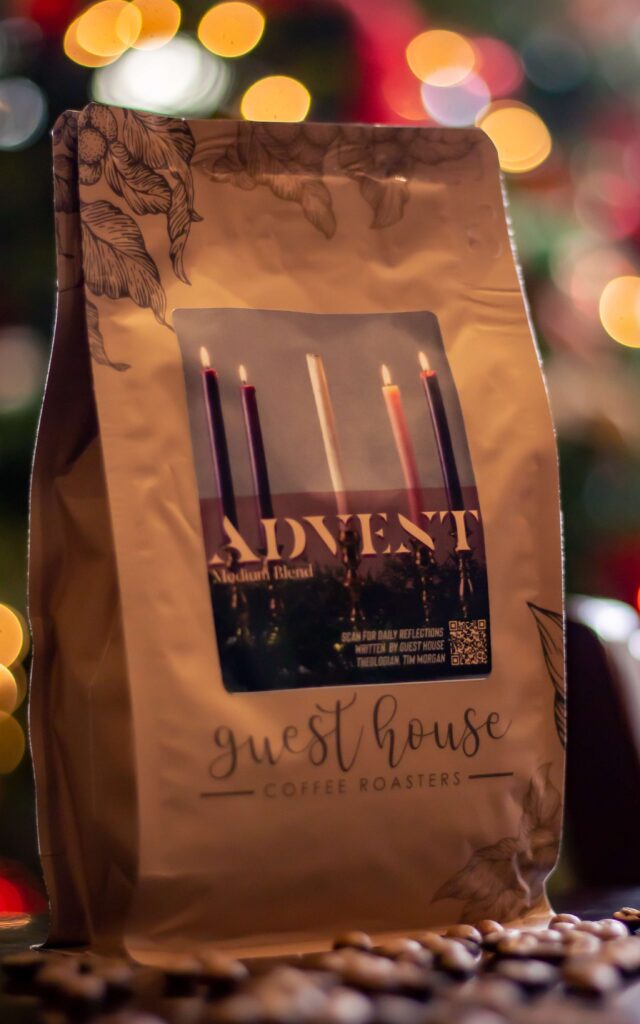“Woe is me! For I am lost; for I am a man of unclean lips, and I dwell in the midst of a people of unclean lips; for my eyes have seen the King, the Lord of hosts” (Isaiah 6:5).
We are inert in sin before the Lord. We sink, frozen in stupor, into the quicksand of our sickness. In the psalmist’s dreary, but precise words, “there is no health in my bones, because of my sin” (Psalm 38:3). Our only hope is God’s salvation. This is a churchly platitude so common there’s almost no sense in repeating it. However, there’s a sense in which it bears repeating. I suspect we often forget the distance that pertains between us and our people, apart from the Lord’s binding (and piercing) love. We can be a bit naive, even blind to ourselves here. And that’s our downfall. Genuine love for one another requires purification (1 Peter 1:22). It is a demand and a gift which does not come from within, which is not a personality trait or a natural inclination; it isn’t something which falls in our lap by fate, casts its spell upon us, or matches up just right with what we want. The apostle John writes, “By this we know love, that he laid down his life for us, and we ought to lay down our lives for the brothers” (1 John 3:16). Outside of this practice of stripping away our own projects, our own intentions and plans, our own predispositions and motives—apart from this, we are lost to one another in the maze of what other people become for us. The psalmist writes, “My friends and companions stand aloof from my plague, and my nearest kin stand far off” (Psalm 38:11). At stake here isn’t merely that we “bear one another’s burdens” (Galatians 6:2), but that, in faith, we release one another to be God’s, under God’s judgment, and delivered by God’s act of salvation. We cannot save one another. The hope we put in or elicit from each other is misplaced, because we hope in one another for ourselves, rather than for God.
Our only hope is God’s salvation. In our encounter with the Lord, the light cast from his face illumines our hideous faults, our desperate situation (Isaiah 6:5). As the psalmist says, “I am like a deaf man; I do not hear, like a mute man who does not open his mouth. I have become like a man who does not hear, and in whose mouth are no rebukes” (Psalm 38:13-14). We are not only paralyzed in our corruption and alienated from our people, we are afflicted by our enemies (Psalm 38:12, 19-20). They use us to assail Jesus’ authority (John 8:6), attempting to constrict God’s prerogative to forgive (John 8:11). Here, Jesus’ coming is our only comfort. When our enemies pile on condemnation, Jesus strips their power with a word: “Let him who is without sin among you be the first to throw a stone at her” (John 8:7). In his impotence, the psalmist declares, “But for you, O Lord, do I wait; it is you, O Lord my God, who will answer. For I said, ‘Only let them not rejoice over me who boast against me when my foot slips” (Psalm 38:15-16). In our encounter with him, in the situation we stand in before him, the Lord consecrates us for his mission. He makes us worthy of himself (Isaiah 6:6-8; 2 Thessalonians 1:5, 11). Our salvation is in that he is not far from us, for he is coming (Psalm 38:21-22; 2 Thessalonians 1:7)!
God shuts the gate to our calculations, our strategizing and conniving. There is no “in between” belief and unbelief, in the sense that faithlessness cannot save itself, it cannot bring its own world to life, because Jesus is life (John 14:6). The world cannot be its own and “be healed” (Isaiah 6:10). Rather, the whole world must be flattened, every tree felled, all the land brought down to a single stump. The prophet Isaiah writes, “The holy seed is its stump” (Isaiah 6:13). The ways in which we relate to one another for ourselves must be totally deconstructed. The afflictions of the enemies of God’s people must be avenged (2 Thessalonians 1:7-9), because unless God’s judgment is total, then his salvation is partial and his claim limited. Jesus asks, “Woman, where are they? Has no one condemned you?” We reply, “No one, Lord” (John 8:10-11).
Today, I’d ask you to reflect upon a difficult truth: the ineptitude we all share toward one another. We often disguise, in one way or another, our wisdom, gained with age and experience, as God’s wisdom; our advice as God’s counsel; our hopes for one another as God’s purposes. Under our own stewardship of one another, we are not well off. And we’re always prone to mitigate the compass of God’s judgment. However, in the birth of Jesus, God gives us his word. He is the sunrise which visits us from on high and gives “light to those who sit in darkness and in the shadow of death, to guide our feet into the way of peace” (Luke 1:79). He claims us, makes us worthy, and sends us in his mission. Let’s not forget, though, the worthiness which we have is that which he has given.
Further Reading: Psalm 38; Isaiah 6:1-13; 2 Thessalonians 1:1-12; John 7:53-8:11
Written by Guest House Theologian, Tim Morgan. These reflections are a complimentary addition to our Advent Blend Coffee Bags. Scan the QR code each day to read the most recent reflection.

More Advent reflections can be found here.